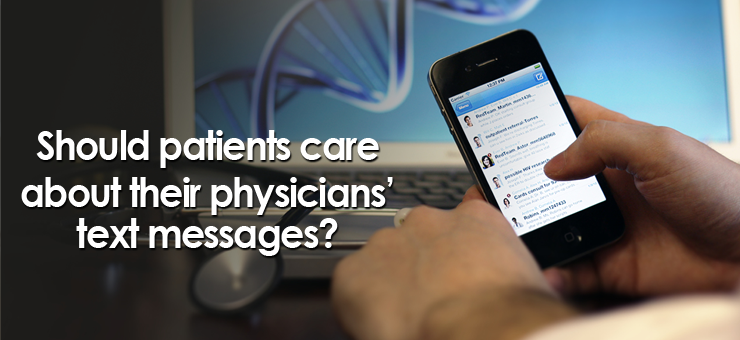One of the major security concerns for healthcare organizations, despite the modern day EHRs, compliance officers and HIPAA guidelines about protecting patients’ medical information, is the use of text messaging between physicians to share patient data.
Physicians and clinicians are quick to send a text message to a colleague to ask about test results or with questions about a patient. The problem is, that standard text messages are not HIPAA compliant. Such communication of sensitive patient data and protected health information (PHI), could compromise patient privacy and expose the organization to liability fines.
However, this alone should not discourage the physicians from sending text messages, as they invariably increase the efficiency and quality of care being delivered. It is just that they need to make sure that they are using a secure messaging platform to do so.
According to a research, nearly 60% of physicians at children’s hospitals said that they sent or received text messages for work purposes in 2012.
It is easy to think that text messages will only be read and received by the intended recipient, but in reality, it is impossible to gauge who will actually read that message. Some of the messages may contain sensitive patient data, protected health information or even details about a diagnosis that the patient may have received. The fact that messages are stored on the mobile network, makes carrier’s servers another issue.
The need of the hour is to:
- Have encryption at all levels (database, transmission and on the app)
- Track whether messages have been delivered
- Set up a secure, private server with back up facilities
- Remotely wipe data off the phone if it is lost or stolen
- Be able to work on all spectrums of cellular data including Wi-Fi
- Be automatically logged out due to inactivity
- Have limited data life (30 days) for messages
If healthcare providers have quick and secure ways to stay in touch, the patients will benefit from it. A secure text messaging platform can actually help healthcare organizations provide better care as per HIPAA standards.
